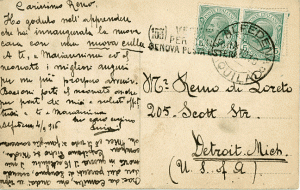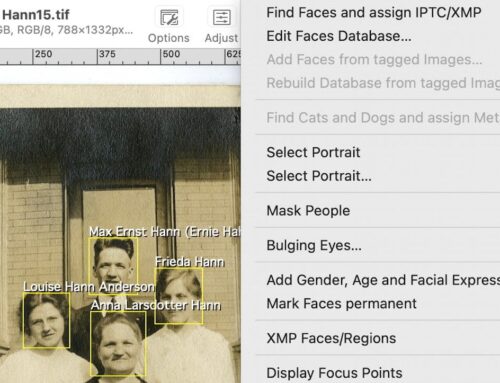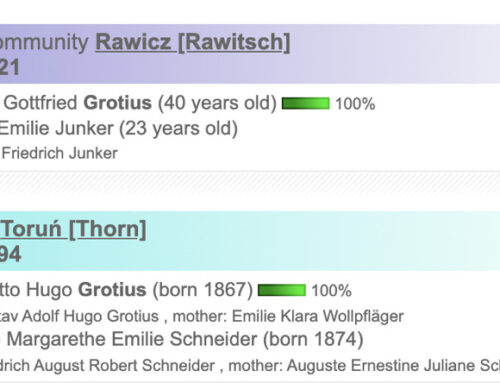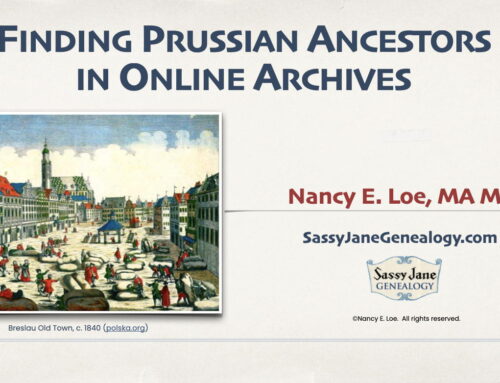
Librarians catalog, but archivists arrange and describe. Archivists nearly always work with original records, not photocopies or printouts. When they arrange and describe collections, they work from the general to the specific, determining series (categories) and then folders.
When you first start organizing your family papers, it’s common to get bogged down and obsess about individual pieces of paper, but it’s more helpful to think about your family collection as a whole. So for today let’s start by thinking about the kinds of records you might find in your family’s papers.
1. Personal Papers, including:
- Artwork and drawings
- Audio or written anecdotes and reminiscences
- Birth announcements
- Diaries and journals
- Ephemera, such as bookmarks, invitations, tickets
- Family and personal correspondence
- Fraternal associations
- Funeral cards
- Memoirs
- Migration records
- Motion pictures
- Newspaper clippings
- Postcards
- Photo albums
- Photographs
- Political affiliations
- Student work
- Report cards and diplomas
- Scrapbooks
- Slides
- Travel accounts
- Vital records
- Wills, trusts and probate records
2. Professional or Business Records, including:
- Banking and financial paperwork
- Bills of sale
- Correspondence
- Honors and awards
- Ledgers
- Legal records
- Marketing records
- Notebooks
- Payroll records
- Photographs
- Political affiliations
- Professional organizations
- Research files
- Résumés and vitas
- Teaching notes
- Volunteer, fraternal, and charitable records
3. Family records, including:
- Bibles or other religious items
- Ephemera
- Family photographs
- Family reunion records
- Group correspondence (“round robin” letters)
Do these categories help you get started? Do you have other items in your family papers that you have questions about? Feel free to ask in the comments section.




I spent the last two days sorting in the “Archival Closet”. I’m looking forward to your posts and what I will be able to learn from a REAL archivist. I’ll be writing about my experience too (it keeps me accountable).